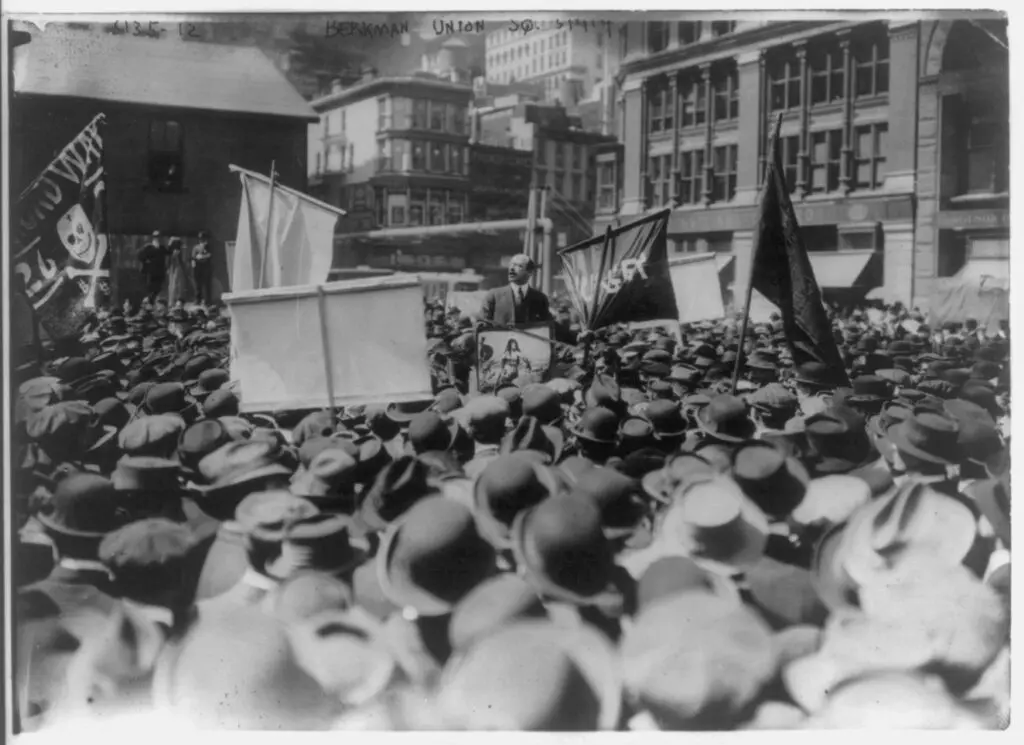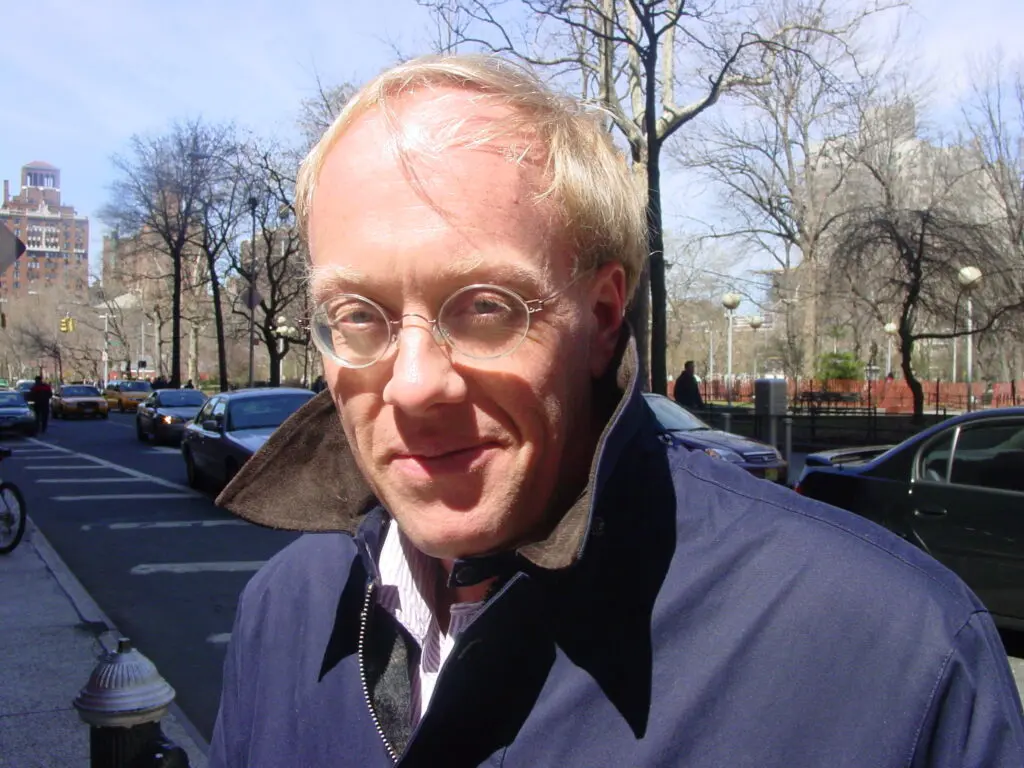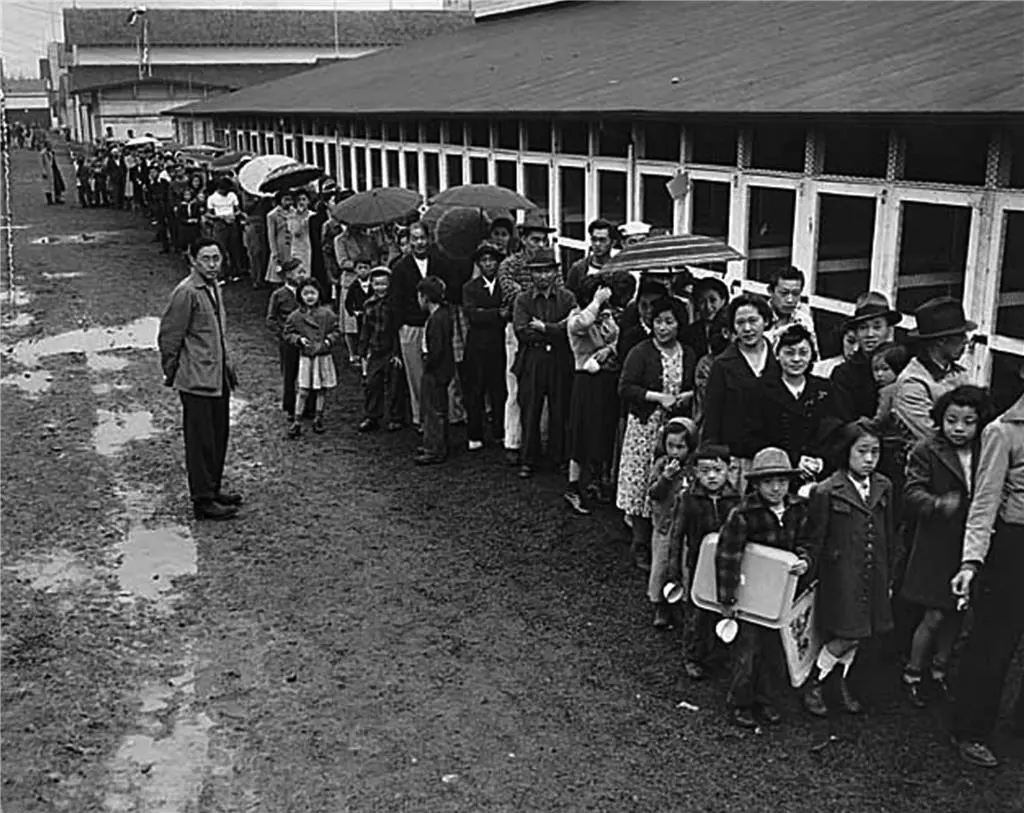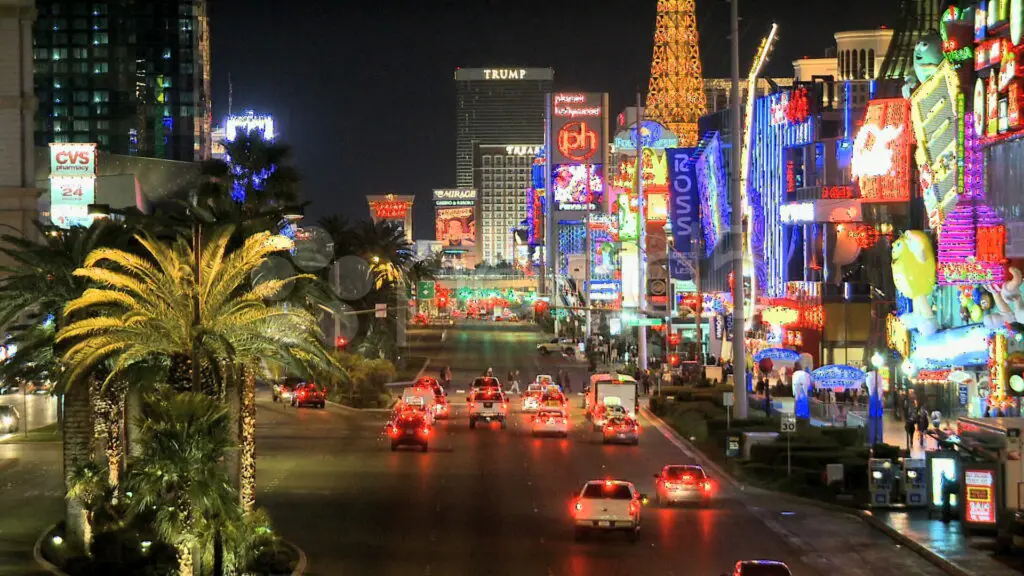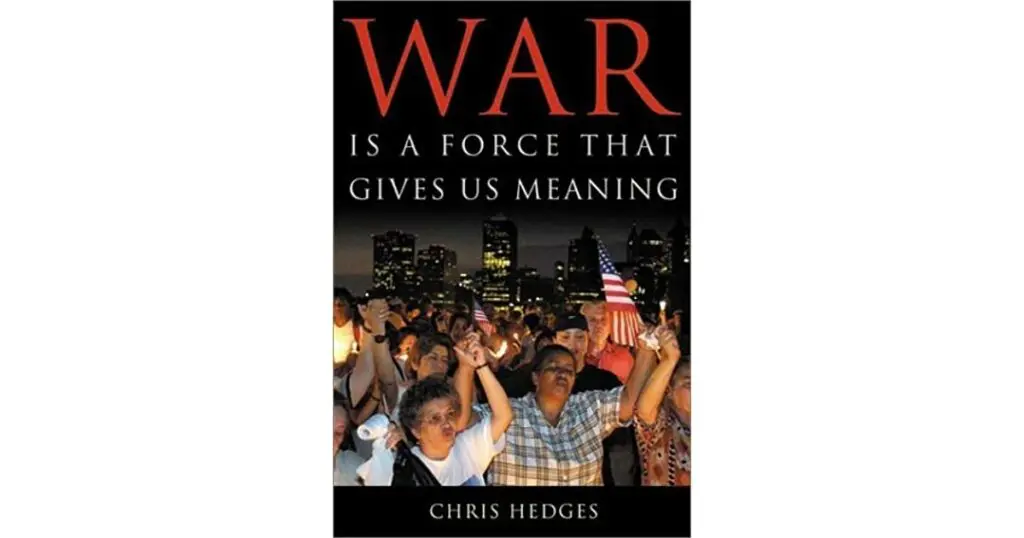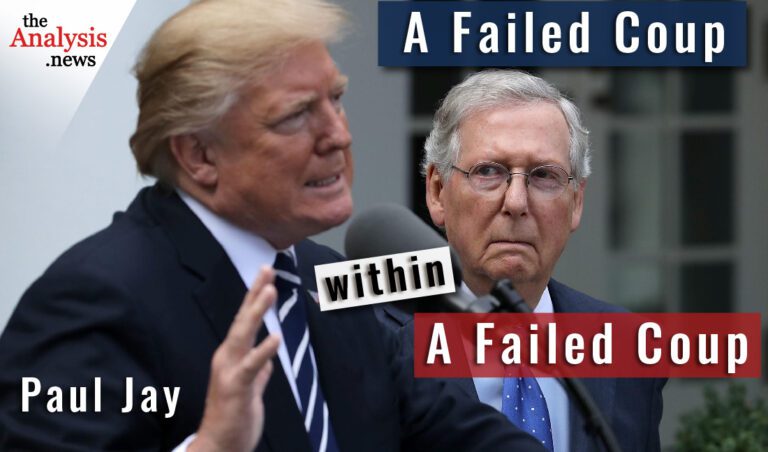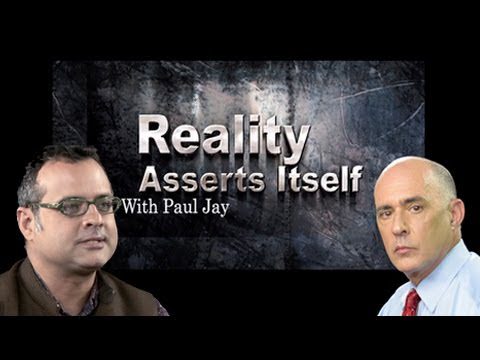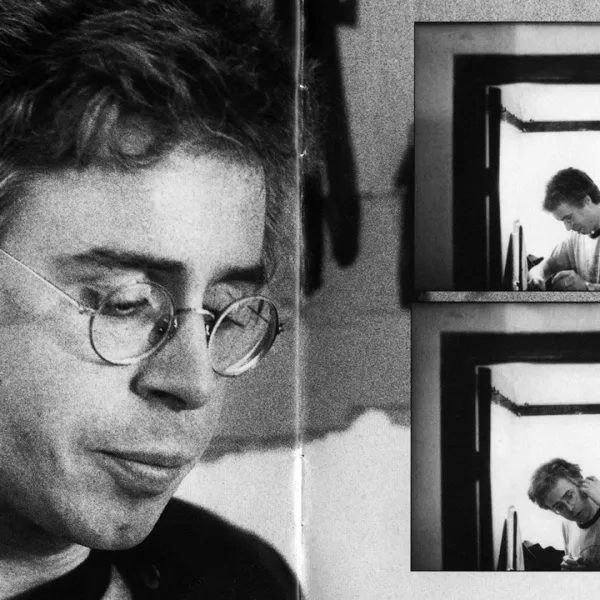Paul Jay interviews author, journalist and activist Chris Hedges about the formative experiences that shaped his worldview. This is an episode of Reality Asserts Itself produced on July 16, 2013.
TRANSCRIPT
PAUL JAY, SENIOR EDITOR, TRNN: Welcome to The Real News Network. I’m Paul Jay in Baltimore. And welcome to the first episode of a new show called Reality Asserts Itself.
In this show I’m going to be interviewing people I find interesting–and I hope you will. And we’re going to talk about big ideas. But mostly after we talk about big ideas, we’re going to talk about what to do next.
Now joining us for the inaugural interview is Chris Hedges. He’s a Pulitzer prize-winning journalist and a senior fellow at the Nation Institute. He spent nearly two decades as a foreign correspondent in Central America, the Middle East, Africa, and the Balkans. He’s reported for more than 50 countries and has worked for The Christian Science Monitor, National Public Radio, and The New York Times, for which he was a foreign correspondent for 15 years. He’s received the Amnesty International global award for human rights journalism in 2002 and is the author, with Joe Sacco, of several books, including the New York Times bestseller Days of Destruction, Days of Revolt. And he writes a weekly column for Truthdig. Chris also holds a master of divinity degree from Harvard University, and he was awarded an honorary doctorate from Starr King School for the Ministry in Berkeley, California. Thanks for joining us.
CHRIS HEDGES, JOURNALIST AND WRITER: Thank you.
JAY: So start with–and just for viewers, most of my interviews on this show are going to start with who my guest is and a little bit more why they think what they think, and then we’re going to get more into what they think. And these will be multiple episodes.
So start with how do you get from being a seminary student, a religious man, one would assume, to a mainstream journalist, to a career-ending–mainstream career-ending, at any rate, speech in Rockford College in 2003. But take us back to the path that led you to be a seminary student in the first place.
HEDGES: Well, I was always a writer, and I wrote compulsively. Language is a form of music, was something that dominated my life from the age of four or five. I wrote poems, short stories. I published my first piece in a historical journal when I was 12. I published my first piece of journalism in The Christian Science Monitor when I was still in college.
But I could never square the supposed neutrality and objectivity of journalism with the social commitment that was inculcated within me, primarily by my father, who was a Presbyterian minister and was involved in the civil rights movement, the antiwar movement, and the gay rights movement in the 1970s–very controversial stance. His youngest brother, my uncle, was gay. My father was very outspoken on behalf of gay rights, something which the church, the institutional church had great difficulty with.
JAY: So you grow up with a father who was a rebel.
HEDGES: Yes.
JAY: With religious roots, but a rebel.
HEDGES: Right. And–.
JAY: Christian.
HEDGES: Right. And, you know, I still (although probably would not formally consider myself religious) honor that tradition of–one could call it Christian anarchism, which is the kind of term they used to describe Dorothy Day and the Catholic worker, and went to seminary really in part–I suppose I was clashing with my nature, but I went to seminary because I felt that that social commitment was paramount.
So when I graduated from Colgate University, I moved into the ghetto, into the inner city in Boston and Roxbury, and ran a church across the street from one of the most notorious housing projects in Boston, Mission Main and Mission Extension.
JAY: While most of people doing that at that time would have–like the worker priests and such, I mean, they would have considered themselves religious, and the way to express that was through this kind of social commitment.
HEDGES: Right.
JAY: You were not religious?
HEDGES: No, I was. I wanted to be an inner-city minister. You know, I was at the time. I was planning on being ordained. I was planning on spending my life in the inner-city.
And I had a kind of clash (and I write about it in the first chapter of my book Losing Moses on the Freeway: The 10 Commandments in America) with the institutional church and liberal institutions like Harvard Divinity School that like the poor but didn’t like the smell of the poor. They spent a lot of time talking about empowering people they never met. And that hypocrisy was something that I had great difficulty with.
I also, my second year at Harvard, became friends with a guy named Robert Cox, who had been the editor of The Buenos Aires Herald at the time of the Dirty War in Argentina. And he was the only newspaper editor every day to print the names of the disappeared, the desaparicedos, on the front page above the fold, an act of tremendous courage that eventually saw him disappear, taken away by the falconeros. And the only reason I think he survived is because he is a British citizen or was a British citizen. And he was at the Nieman Foundation at Harvard.
And that was a very important relationship for me because it wedded the love I had of language and of writing with the commitment to social justice that mainstream journalism said was an anathema to their creed of objectivity and impartiality and neutrality, which of course I later came to learn is a kind of subterfuge. It’s not true, of course. And what I did was leave for Latin America. I finished my second year of divinity school, went and studied Spanish in Bolivia with the [m@’reInoU] fathers, the Catholic Missionary Society. Ended up in Argentina, covered the Falkland war for National Public Radio from Buenos Aires. Went back to divinity school, graduated, and then turned around and went to El Salvador to be a freelance reporter and was five years in Central America.
JAY: So is that a big decision for you, not to continue? You were planning to be in the ministry, and now you’re off to Latin America as a journalist.
HEDGES: Right. Not really, because–I mean, you know, you’re approved for ordination before you go into divinity school, and I had done all of the academic work. All I had at that point was to tell my committee what my call was, your call to be, you know, a chaplain or associate pastor somewhere or something. And I said, well, I’m going to El Salvador to cover the war as a freelance reporter. And there was a long pause, and the head of the committee said, well, we don’t ordain journalists. And my dad, who was seated outside the room at the time, you know, 40 years as a parish minister, his only comment was, you’re ordained to write.
And I’ve always placed myself in or amongst the oppressed. Whether that was in Gaza, whether that was in El Salvador, whether that was in Sarajevo, I’ve always positioned myself as a reporter in a place where I was amplifying or giving voice to those who were being brutally oppressed.
JAY: So how did you last at The New York Times for 15 years with thoughts like that?
HEDGES: Because nobody wants to go to Gaza. Nobody wants to.
When I told the executive editor of The New York Times that I wanted to go to Sarajevo, at that point, 45 foreign correspondents had been killed, dozens wounded. He said, well, I guess the line starts and ends with you. They would much rather sit in Paris or follow the secretary of state around. And yet institutions like The New York Times need reporters who are willing to go in those places, and those were the only places I wanted to go into. And so I actually had a fairly, you know, prominent and rewarded career at The Times because I was quite selective about where I went.
For instance, I covered the first Gulf War, and I had no interest in going to the press conferences run by Schwarzkopf or anywhere else. And so I was always out on the front lines interviewing lance corporals, sleeping in foxholes. I went into Kuwait with the Marine Corps. I was always reporting, you know, like Ernie Pyle or somebody else in war zones with the sort of average soldier or Marine. And newspapers needed it. I mean, indeed, my reporting for the first Gulf War was submitted by The New York Times for the Pulitzer.
So I was selective about where I placed myself and what I was doing, and because there wasn’t much competition, partly because that kind of work is dangerous and partly because it’s not prestigious. I mean, there is a whole element at elite journalistic institutions like The Times that want to hang around with the powerful, that want to sort of in essence be integrated into the circle of the power elite, and I never had any interest in that.
JAY: Now, you are still able to keep within the bounds of keeping your job. Did you ever have to compromise in any way? Did you find any editorial interference? This is all leading up to the speech where clearly they didn’t like it.
HEDGES: Well, let’s be clear. I mean, American journalism, unlike European journalism, is quite restrictive in its form. And you ingest the form of The New York Times. You know how to write a New York Times story. So the form itself precludes–the boundaries are so narrow that you can’t do the kinds of things you could do if you were writing for Liberazione or The Guardian or something, which is make comments outside that would be considered editorializing. So the form itself is constrictive. That’s the first part.
The second part is that because I was writing on the ground, I mean, even though I was in Gaza, I was writing what I saw. So I was in Gaza, for instance, when Israeli F-16s bombed Gaza. I went to the site where the bombing was. I counted the number of corpses. I described those who appeared to be children or those–it was quite hands-on.
JAY: So as long as you’re saying this happened, that happened, you can verify what you’re saying, and they would print it.
HEDGES: Right. And yet, of course, the Israelis hated that reporting, because the spin they were putting out of it on that particular incident, you know, they would always talk about a surgical strike against a bomb-making unit. Well, you know, dropping a 500 pound iron fragmentation bomb in a densely populated refugee camp is not a surgical strike, and half the time there weren’t any bomb-makers anywhere nearby, I mean, you know, when you get on the ground. And so that reporting rankled the Israelis quite a bit.
Now, logistically, living in Gaza at the time was very unpleasant. Getting to the site where an attack was was extremely difficult. About 60 percent of my time was just spent trying to get where something happened. And a lot of reporters didn’t want to do it. A lot of reporters didn’t want to be in Kosovo, didn’t want to be in Bosnia, didn’t want to be in these physically difficult places. But once I was there, I would say the paper was quite happy to have it.
JAY: Part of most Americans’ religion, whether they are religious or not in terms of the way they identify, is Americanism. You know, you go to school and you put your hand on your chest and I pledge allegiance. When you were younger, growing up, going to seminary school, you know, before you start realizing what’s going on in Latin America and the Middle East, how much is Americanism part of you?
HEDGES: Not much, because although I was a kid, my father was hauling me off to antiwar demonstrations and in fact told me when I was about 12 or something that if the Vietnam War was still being fought when I was 18 and I was drafted, he would go to prison with me. And I still have this, like, vision of sitting, like, for two years in a jail cell with my dad. So that forces you to–by the way, he was a vet. He was a sergeant in North Africa.
JAY: Is he still alive?
HEDGES: No.
He was a sergeant in North Africa in World War II. So, I mean, war is something he knew, although he was a cryptographer, he wasn’t–he was around combat units. So those made me ask questions.
And I grew up in a very rural all-white farm town in upstate New York, where my father’s open support for Martin Luther King and the civil rights movement was quite contentious. Martin Luther King in these rural white enclaves at that time in the ’60s was one of the most hated men in America. And then to see my father come out in terms–in support of gay rights. So my father was a kind of lightning rod throughout his life.
JAY: And your father would have been radicalized in the ’30s.
HEDGES: Well, I think my father was, like many of his generation, radicalized by World War II. We’ve mythologized World War II. He and most of my uncles were in the war. I had one uncle that was physically and emotionally destroyed in the South Pacific, drank himself to death in a trailer. I mean, and I think that that wasn’t uncommon with combat vets who suffered from what we now call post traumatic stress disorder–and there was no name for it then and very little understanding or sympathy. So even though–my uncle, for instance, mailed all of his medals back to the Pentagon. He hated war. He was destroyed by war. In our family, he was an embarrassment. I mean, there was no alcohol in the [m{ns] where I grew up, and yet my uncle was a drunk.
And it–you know, I think there were probably tens of thousands of families who were caring for people who had been psychologically and physically maimed, but they were shunted aside because they didn’t fit that kind of mythic narrative. And I really grew up because of that in the shadow of World War II. The shadow of the war fell upon my family.
And so, you know, all of those factors and all of the stances that my father took meant that I was forced at a young age to ask questions that maybe, you know, many of my peers were not asking.
JAY: So when you go to Latin America and then you go to the Middle East, this is not a big surprise to you what U.S. foreign-policy is. If anything, it’s more a confirmation of a lot of things your father was saying.
HEDGES: Well, you know, I would say actually the really seminal moment was moving into the inner city and watching what we do to our poor, the warehousing of our poor, the shattering of lives, especially the lives of children, of poor children. That maybe rattled me more than almost anything I saw. And I’ve seen horrific things. I remember going back to the chaplain at Colgate after a few months of living in the projects and just walking into his office and sitting down and saying, are we created to suffer? And his answer was: is there any love that isn’t?
And I think for a white person of relative privilege to confront the cruelty of what we do to poor people of color in this country and to begin to understand institutional forms of racism, all the mechanisms by which we ensure that the poor remain poor in, you know, what Malcolm X and Martin Luther King correctly called these internal colonies really rattled me, really shook me. It made me question all sorts of things–the myth we tell ourselves about ourselves, the nature of capitalism, the nature of racism, exploitation.
So those two and a half years I spent in Roxbury were quite profound–not that, of course, I wasn’t stunned at the evils of empire in places like El Salvador or Gaza or anywhere else. But Roxbury was quite a shock for me.
JAY: Okay. In part two of our interview with Chris, we’re going to pick up the story with his–what we now know was a career-ending speech in 2003 at Rockford College. Please join us for part two of our series of interviews with Chris Hedges on The Real News Network.

